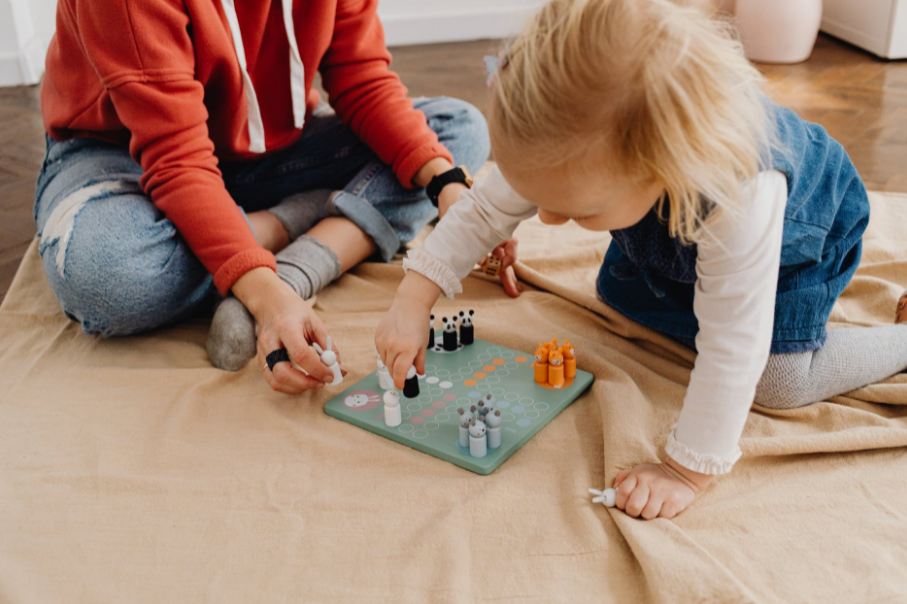Games offer entertainment and the opportunity to connect with your friends and family on a weekend night. While video games have their own place, board games like target darts provide a lot more than just entertainment. The old board games collecting dust in the back of your closet provide an array of benefits. In addition to bringing people together through cooperative and competitive gameplay, board games also promote healthy brain development and hone our cognitive skills.
Read on to learn about seven mind-blowing benefits of playing board games:
Strengthens the Family Bond
Due to the hustle of everyday life and clashing schedules of everyone, sitting down to spend some uninterrupted time with your family may be quite impossible. However, one excellent way to make up for that lost time is to play board games with your family. When you sit down to play board games with your family after a long and tiring week, you get the rare chance to bond with them and strengthen the family unit.
As everyone is huddled together, the physical proximity also pushes everyone closer emotionally and increases the sense of belonging. This works especially for working parents who cannot spend much time with their young children due to their inflexible schedules and are too tired to go for a family dinner once they reach home. Playing board games with your children gives you the opportunity to enjoy your child’s company even at home. You no longer have to plan a picnic or a trip to Disneyland to bond with your child: all you have to do is pull out that board game lying inside your cabinet.
Stimulate Brain Development
Board games are not only fun to play but also responsible for the healthy development of your brain. Playing board games is an exercise for your brain, just like playing football is an exercise for your body. When you play board games, areas in your brain that are responsible for memory formation and complex thought processes – the hippocampus and prefrontal cortex – are stimulated.
Moreover, as we move counters or pieces while playing, we learn spatial awareness and pre-planning. Our visual system also benefits as it learns when to use the hands to hold the counter, which, in turn, helps train the higher functions of the brain and develops many visual and perceptual skills. Strategy games – such as chess and monopoly – play a crucial role in the development of the frontal lobes of the brain. In fact today, there are study openings which parents can avail themselves for their children. These frontal lobes are responsible for all executive cognitive skills we utilize in our day-to-day lives, including organizing, problem-solving, decision making, and higher-level strategic thinking. When you frequently play games, you put into practice these essential cognitive skills and sharpen them.
Playing board games not only encourages healthy brain development in kids and teens but in people of all ages. It is especially beneficial for older people as it helps the brain build and retain cognitive associations into old age.
Elevates the Feeling of Happiness and Reduces Risks of Mental Diseases
One of the primary side effects of playing board games is that you laugh a lot, have fun, and feel good. Laughter is one of the crucial ingredients for a healthy learning experience. It has been scientifically proven that laughing stimulates the release of endorphins: the chemical responsible for the feeling of happiness. These happy hormones improve our conscious and unconscious mind functions, leaving us feeling cheerful and content. When you share laughter with people, it promotes empathy, trust, and compassion.
Since you have a good time while playing board games, it helps reduce stress as well. In fact, one of the most substantial benefits of regularly playing board games is that it reduces the risk of cognitive declines in older people, including those associated with Alzheimer’s and dementia. As you keep your mind engaged while playing games, you keep exercising it. A brain that is regularly exercising has lower chances of losing its power. In an online survey by RealNetworks, Inc., fifty-three percent of the respondents answered that they played board games to relieve stress.
Teaches Children to be Resilient and Instills Spirit of Sportsmanship
Board games often bring out the fun and competitive side of kids. However, some children get easily flustered when playing games and have a low tolerance for losing. It is essential for such children to play board games often as it instills resilience and a spirit of sportsmanship in them. The ability to pick oneself and try again when faced with setbacks is essential for growing kids to learn and display at both home and school. Playing board games helps children learn from their failures in a safe environment and increases their ability to deal with setbacks.
If your child has a hard time losing, allow them to break the rules at first to make the game more tolerable and fun for them. However, do not purposely let them win, or you will be taking away the opportunity for them to learn from failure. Instead, play by the rules to promote resilience and encourage them to employ coping skills when things go south for them. Praise their efforts after every game and try to start a conversation about what went wrong to help them see that every failure has a lesson that leads to success.
Games like Ludo and Monopoly encourage healthy competition among children. By playing such games, your child also gains knowledge of how to display great sportsmanship in defeat. They learn to not only win but also lose graciously and to celebrate other player’s success.
Enhances Self-Confidence and Build Communication Skills
Board games provide the perfect tool to open up and connect with your peers. Quiet and timid individuals who have trouble communicating – especially teenagers– have the perfect opportunity to display a creative side of their personality when playing board games. It helps them develop a greater sense of individuality and creativity, which, in turn, boosts their self-esteem and makes them feel included. Teens who normally struggle to communicate effectively with their peers often become very chatty when playing board games. This happens because when you are playing, you talk about the game, and soon, conversations about other topics take off from there.
Moreover, kids learn how to navigate friendships when playing games. It provides an easy way for anxious kids to build interpersonal relationships with their peers. If you, too, struggle with striking up conversations with others, try playing boards games that promote structured opportunities for chitchat, such as dumb charades.
Teaches the Value of Teamwork
Although board games are just a fun way to relax and share laughter with your friends and family, they can also teach meta-message to kids about life in a stress-free environment. When playing board games, children learn that winning demands patience and strategy, your luck can change in less than a second, and sometimes you can lose even if you give your best. But in addition to all that, board games also teach children the value of teamwork – a constructive tool they will need throughout their life. The foundation of many board games is cooperation, as they require two or more players to team up. When kids play such games, they are encouraged to form a team and work together. It gives the perfect opportunity for children to learn how to engage in teamwork with their peers for a common goal in a challenging yet fun way.
Lengthen your Attention Span
When played without interruptions, board games can help lengthen your attention span and increase your ability to focus for longer periods. Therefore, they benefit children with learning difficulties greatly and help them overcome their problems. Children with autism, in particular, find board games both enjoyable and helpful as such games have a fixed set of rules and correct and incorrect moves.
Moreover, the declining attention span of adults in a world filled with digital distractions means everyone can reap the benefits of playing board games. But to do so, you must see the game through to the end. The next time you sit with your family for a game of Monopoly, make sure no one checks their phone or turns on the TV before the game finishes. Finishing a board game without interruptions will help lengthen your concentration span. For those who prefer to play board and puzzle games online, check out Im-a-puzzle.com. This site allows you to solve thousands of jigsaw puzzles for free, helping you improve your attention span a little at a time by increasing the number of pieces and the difficulty. You can even create your own puzzles and share them with family and friends. This is a good option for kids that have a tough time stepping away from the computer or putting down their phone but still want to reap the benefits of playing board games.
Recently, scientists at the University of Toronto carried out an experiment to assess people’s ability to search for and find an object. Their results showed that those who regularly played games were much quicker at finding the target than people who did not play games. So, if you, too, have a hard time finding the car keys every morning, it is time to get yourself a board game.
The Takeaway
Now that you know the incredible benefits board games have to offer, what are you waiting for? Pull out that board game from your closet on the next get-together with your family and reap these benefits yourself!




